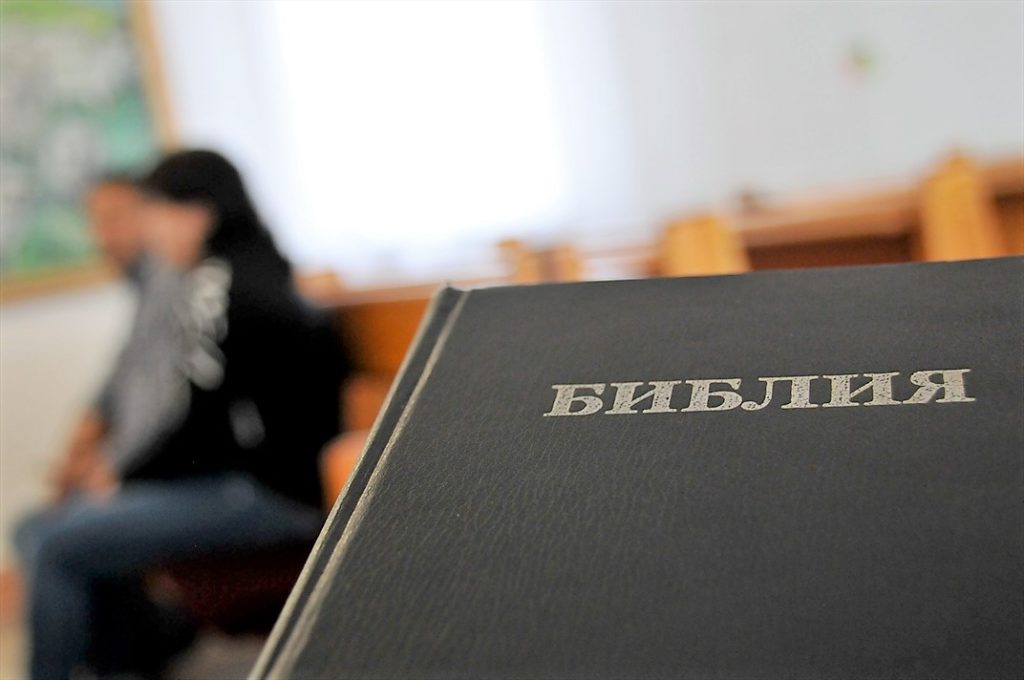
A year on from Russia introducing its “anti-missionary bill” in July 2016, more than 180 cases have been brought before court, with prosecutions steadily increasing throughout the 12-month period.
The list of cases against 129 individuals and 52 religious communities, published by regional news agency Forum 18, includes missionary activity by at least 93 individuals or groups affiliated to Christian organisations. Other groups prosecuted include Jehovah’s Witnesses, Muslims, Jews, Mormons, Buddhists and Hare Krishna devotees. One hundred and thirty fines of up to 100,000 roubles (US$1,670) were issued following the court cases, with five foreigners prosecuted and deported.
Activities such as holding prayer meetings at home, posting worship times on websites, and giving a lecture on yoga have been interpreted by police and prosecutors as “missionary activity”, said Forum 18.
Russia has also imposed the legislation in Crimea, where religious organisations had to re-register under Russian law, with many of them being “forced to restructure themselves to meet Russian requirements”.
The law, known more commonly as the “Yarovaya” law (the name of one of its authors) was adopted “to fight extremism”, although Christians in Crimea and other groups have experienced increased pressure through “raids, fines, religious literature seizures, government surveillance, expulsions of invited foreign religious leaders, unilateral cancellation of property rental contracts and obstructions to regaining places of worship confiscated in the Soviet period”, according to Forum 18.
In March, Donald Ossewaarde, a US missionary based in the Russian city of Oryol, 300 kilometres south of Moscow, filed an application to the European Court of Human Rights arguing that his right to religious freedom had been violated by the law after he was found guilty of conducting illegal missionary activities. He had been holding weekly Bible meetings at his home for many years before the Russian government introduced the law in July 2016.